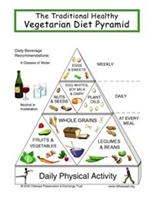
Food for Type 2 Diabetes
Food for Type 2 Diabetes
The Different Types of Natural and Artificial Sweeteners
Diabetics use several types of sweeteners as sugar alternatives. These sweeteners are sometimes natural, such as Stevia and fruit juice. Other sweeteners are man-made, such as Aspartame (as-per-teym) and Splenda. Read more…
Type 2 Diabetes: Tips for a Summer of Healthy Cookouts
Nearly everyone knows about the dietary risks of summertime cookouts; the menu tends to be loaded with items that are high in fat, high in calories, and full of grease. Read more…
Croutons should be avoided.
Many people believe that they should not add croutons to their salads because of the added carbohydrates. Read more…
Chicken nuggets = Protein. However, chicken nuggets are a poor choice if you are looking to add low calorie protein to your diet. In fact, not only are chicken nuggets often fried and loaded with grease, but … Read more…
Fruits and Vegetables Mythbusters
Because fruits and vegetables are natural, they are good for me. Read more…
Because energy drinks are made with vitamins, they are good for me.
Some energy drinks are made with vitamins. Read more…
Artificial Sweetener Mythbusters
Many people living with diabetes avoid eating sugar, using guidelines like cutting out refined sugar in the form of candy, white bread, and desserts. In place of sugar, many choose to use artificial sweeteners, such as aspartame and Splenda. Read more…
Type 2 Diabetes and Grilling with Splenda
Planning a barbecue? If you want the menu to be healthier than the traditional picnic fare, there are plenty of tasty options. Read more…
Myth #1: Carbohydrates are bad for you.
All carbohydrates aren’t alike. But carbohydrates are also found in fruits, vegetables, beans, and dairy products; Read more…
Diabetic’s Guide to Carbohydrates
It is important for Diabetics to be aware of what a carbohydrate is and how it reacts within the body. In general, a carbohydrate is a unit of energy, similar to a calorie, that is derived from sugars ingested into the body.Read more…
High Fiber Foods and Managing Diabetes
What Is Dietary Fiber?
Dietary fiber describes the part of the plant that can’t be digested. Dietary fiber is an important part of the Diabetes diet. Read more…
Alcohol is a substance that has a very large quantity of sugar in it. For this reason, drinking alcohol by itself can raise the body’s blood sugar to very high levels, making the consumption of alcohol dangerous for many Diabetics. Read more…
Diet drinks do not contain sugar, which has been proven to be harmful on the body. As such, diet drinks are widely believed to be a healthy alternative to their sugar-loaded counterparts. Read more…
Appetizer and Snack Tips for Diabetes
There are a lot of great appetizer and snack ideas available to people with diabetes. The important thing to remember is to choose good nutrition. That is foods with low calories, low Glycemic Index carbs, low fat, and high fiber.
Read more…










Recent Comments